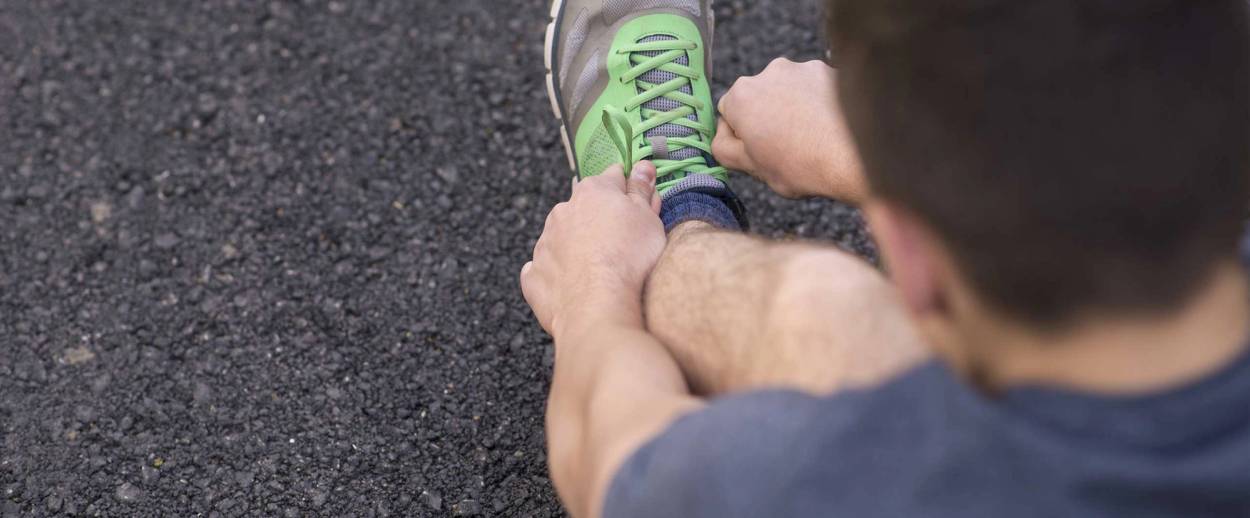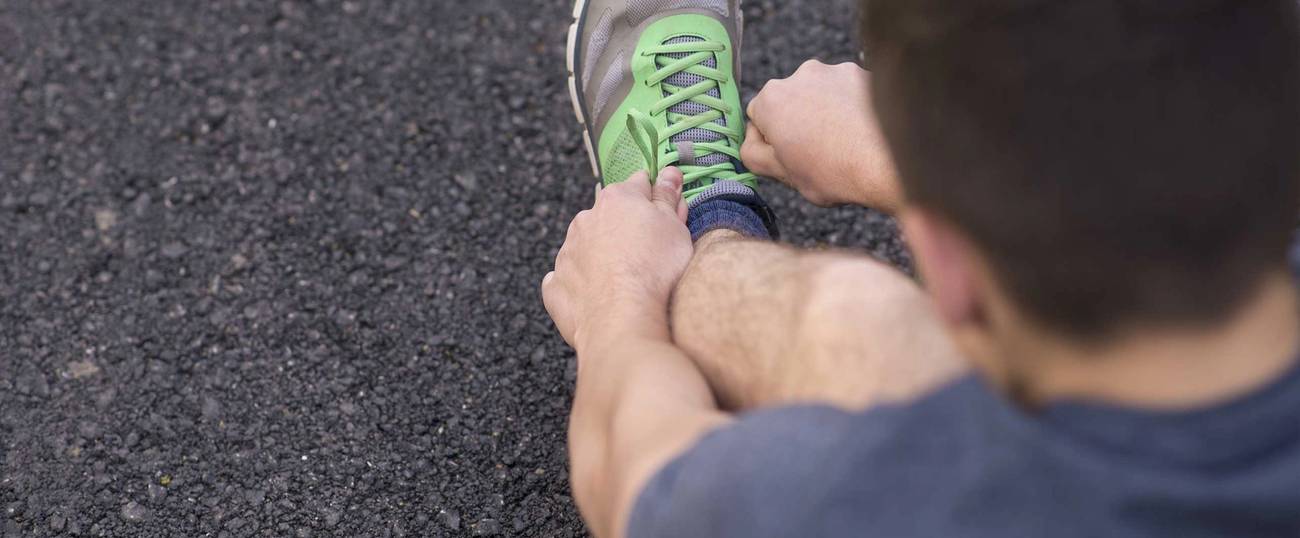What I Gained by Losing Weight
As the High Holidays kick in, one formerly obese writer reflects on going kosher, long runs, and mastering his sins




Of the seven deadly sins that animated the early Christian mystics, I’ve had particularly intimate relations with one: gluttony.
We’re on the cusp of the Yamim Noraim, the Days of Awe, called upon to take account of our actions. I might as well record my meals: the stacks of sandwiches consumed each morning, the princely lunches, the dinners that began early and ended many loaves of bread and pounds of meat and bottles of wine later. I ate without regard for calories or capacity, ate to pass the time and dull the pain, ate because I didn’t know what else to do or how to regain my command on a careening life that moved, as it moves for so many of us these days, too fast for even the most confident helmsman to handle. Finding myself weighing like a small locomotive and moving just as puffingly, I knew I had to change.
But how? Hebrew provided a clue. The word for sin is chet, which comes from la’hachti, or to miss the mark. I’m not usually one who reads volumes into nouns, but there was a lesson there I couldn’t ignore. You were a sinner, Hebrew suggests, not because you were doomed by some primordial flaw or burdened by a monstrous moral defect, but simply because you were not being true to your very own potential. We each have a mark to meet, one that we ourselves have set and that registers all we can be if only we try. And there’s no greater transgression than falling short of this mark.
And I’ve fallen short.
Not necessarily because I’ve allowed myself to grow to such noble proportions, but because I’ve neglected to have the kind of relationship with food that Judaism, along with every religion and philosophy worth its salt, insists we have, one that pauses to ponder what we eat rather than mindlessly ingest whatever is laid before us. To slim down, I knew I needed to change not only my diet but my heart and my mind as well.
Nothing was harder. For so long, I’ve defined myself largely through my excesses. I was the one who delighted in treyf, topping that cheeseburger with a happy heap of bacon. I was the one who roamed the back roads of foreign countries, looking for rich and strange meals. I was the one who scoffed at all those who stunted their pleasures by strictly governing what they could and could not enjoy. I devoured, and now my desires had gotten the best of me.
To find my mark anew, I took two actions, both of which I still hardly understand.
The first was the most shocking, as well as the most profound: I started keeping kosher. Not all at once—after decades of gobbling hot ham, going cold turkey was nearly impossible. Bacon was first to vanish from the plate, followed by shellfish and other obvious offenders. Soon, I started frequenting butcher shops I had never visited before, searching for the kosher hot dog stands at ball games, and ordering a salad or some salmon instead of meat.
Don’t ask me to say anything more about my decision. Don’t even call it a decision, a term that suggests careful reasoning and the weighing of divergent options. I was never so calculating. Like the ancient Israelites enthusiastically accepting the Torah, sight unseen, I responded with a ‘Na’aseh ve’Nishma’—let’s do it first and understand it later. I can only report that, at least for now, I am deeply gratified, not so much because I feel as if I’m returning to the tradition my forefathers—and, as a child, myself with them—have observed, but because I’ve embraced a restriction that compels me to stop and think before each bite. And when I think, I don’t only think about carbohydrates or proteins or fats. I also think about the animals I consume, and how many of them I ought to sacrifice to my appetite, and how must I insist the ones I do eat be treated before they perish. I think about the places where I shop for my meals, and how they treat the men and women who toil to prepare them. I think about each snack, and whether I’ll use its energy to do something that makes me truly happy and proud or consume it hastily, swallowing greedily and soon wanting more. The rabbis who codified the precepts of kashrut could not have foreseen a world where processed goods were around each corner, vying for our pennies and our palates. But they understood perfectly well that when you command someone to abstain from something, that person will never obey blindly; with abnegation comes negotiation, an endless process of considering the underlying logic of abstinence and its discontents.
The spirit, however, is one thing, and the flesh another. I needed my body to follow my soul, and the best way I know of to do just that is to run.
And so, I ran. A little at first, then a lot. Around the park. Down the river. Across town. Listening to Springsteen or to podcasts or to nothing at all. I ran—I run—because running, like keeping kosher, is a lot about instructing your body to do something that may not come naturally and thrusting it past that first inconvenience and into a higher realm of consciousness. Five miles into a run, or 10, or 15, I no longer pay attention to the petty complaints lodged by my achy knees or my knotted back. Instead, I reflect on that heavy and sedentary man lumbering in the not-so-distant past, missing his mark. And with each step, I vow I’ll never miss it again. I’ve lost more than 100 pounds since last Rosh Hashanah, but, more important, I’ve gained mastery over my cravings, mastery I promise never to abandon.
To hold myself accountable to this promise, I will run the New York City marathon this year. To help others find the strength and the purpose that all us sinners have within us, I will be doing it on behalf of Team For Kids, a charity run by the New York Road Runners and dedicated to helping children—particularly those doomed by the circumstances of their lives to grow inactive and unhealthy—discover the soul-saving graces of running. If you’re so inclined, join me in supporting this cause. But even if not, I hope you’ll begin 5778 with a new sense of hope and the confidence that our sins are ours to chase away, one mindful day at a time.
***
Like this article? Sign up for our Daily Digest to get Tablet Magazine’s new content in your inbox each morning.
Liel Leibovitz is editor-at-large for Tablet Magazine and a host of its weekly culture podcast Unorthodox and daily Talmud podcast Take One. He is the editor of Zionism: The Tablet Guide.